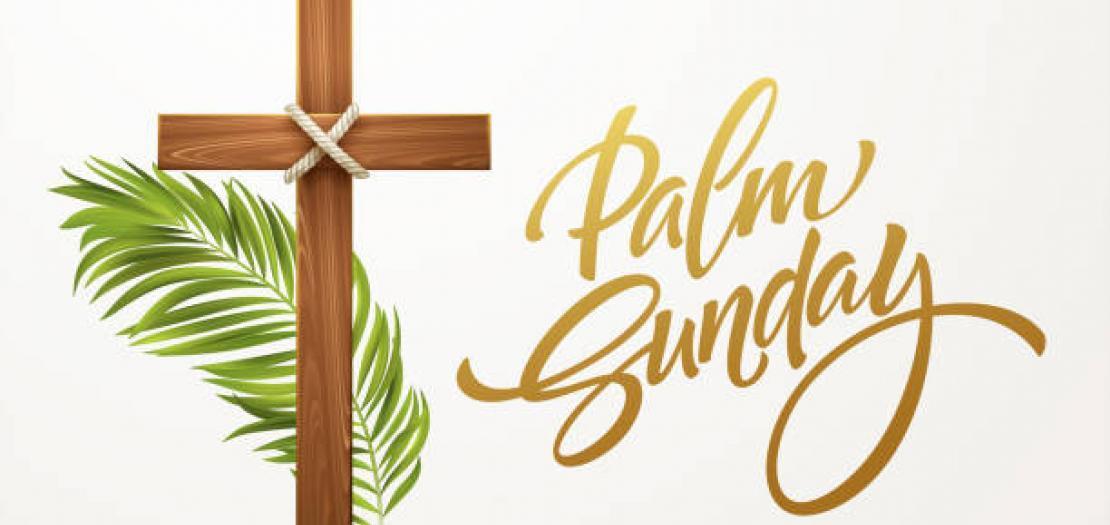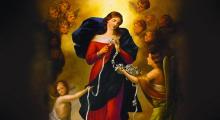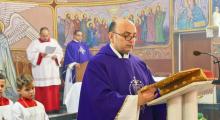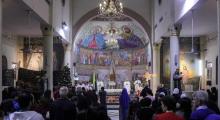Issued by the Catholic Center for Studies and Media - Jordan. Editor-in-chief Fr. Rif'at Bader - موقع أبونا abouna.org

Following is the text of the meditation by His Beatitude Cardinal Pierbattista Pizzaballa, Latin Patriarch of Jerusalem, for Palm Sunday, dated March 24, 2024:
With Palm Sunday we enter into the Holy Week, the celebration of the hour when Jesus definitively reveals the mystery of the Father's love for humanity.
We come to this threshold after having walked through the different stages of Lent.
And we have done so with this gaze, that of one who is amazed by the manifestation of a God "turned upside down," a God who is different and far from every possible form of power, strength, and greatness.
Today's Gospel (Mark 11:1-10) takes us in this same direction.
The peculiarity of this passage is that while it recounts Jesus' triumphal entry into Jerusalem, it also lingers at length on seemingly minor details.
As many as seven verses out of ten (Mark 11:1-7) are occupied with describing the preparations for the entry.
Until the hour had yet to come, no one had been able to lay hands on Jesus. (John 7:30) But the moment this hour comes, nothing can stop Him any longer, and He arranges himself to prepare for the event: He sends two disciples to a village to pick up a colt, anticipates that someone will object, suggests the words to be said...In short, a preparation made with great care, with nothing left to random.
The same thing Jesus will do later, (Mark 14:12-16) for the last supper he wants to live with his own: he will send two disciples to the city, where they will find a man with a pitcher, ask them to follow him, entrust them with the words to say...
Jesus prepares his death, and he does not prepare it alone, just as he had not lived his life alone: his disciples will have a part in this preparation.
But why this focus on preparations?
Jesus prepares his death and arranges the events so that it is clear what this death is to mean.
With the last supper he will try to tell his disciples that his death will not be a failure, nor the end of everything, but rather the culmination of a life given out of love. And that this gift will be like broken bread, it will be nourishment and strength for their new journey, for their fraternal fellowship.
The entry into Jerusalem is carefully prepared by Jesus in order to keep clear the messianic style Jesus has chosen and to which he remains faithful to the end.
Because he is king, Jesus can enter Jerusalem on a horseback and not by foot, as was planned.
Because he is king, he can take the colt from one of his subjects.
But because he is a meek king, his horse will be that of the servants, and not that of the powerful.
And because he is a king who comes to give, and not to usurp, he asks to borrow a colt, but is careful to say that he will return it immediately. (Mark 11:3)
Moreover, for the inhabitants of Jerusalem and for the pilgrims who had come up for the feast, the reference of Jesus' gestures to Zechariah's prophecy (Zech 9:9-10), which announces the arrival of a peaceful, meek king, a king who enters the city on the very foal to announce peace not only to Jerusalem but to all nations, will be evident.
This is why the colt on which Jesus will ride can be untied: the verb returns 5 times in a few verses, (Mark 11:2,4,5) to say that the prophecy is untied, it is fulfilled, and a king capable of bringing peace has finally arrived.
Mark points out that no one had yet ridden on this colt (Mark 11:2): for so far, no king had been a king of peace.
We have seen that the colt, untied and used by Jesus, will be returned immediately. Immediately is an adverb that the evangelist Mark used many times in his Gospel.
Since the time is fulfilled, (Mark 1:15) salvation is here, it is present. Therefore, when Jesus meets someone, immediately something happens: immediately the leprosy disappears, (Mark 1:42) immediately the paralytic rises (Mark 2:12), immediately the tongue loosens. (Mark 7:35) Everything in Mark is rushed, it is present, except for one thing, which is the recognition of Jesus as the Messiah: when the healed people, or the demons, want to proclaim that Jesus is the Son of God, Jesus delays this moment, postpones it, so that there will be no confused meaning, different from the one He wants to give it.
Now we are at the end of the Gospel, and it is time to reveal the proper meaning of His life.
And what was postponed, that is, the full revelation of the Messiah as a suffering servant, is now a present fact, so the colt can be returned immediately to its rightful owner: the revelation is accomplished.
Mark will use this adverb only twice more: for Judas' betrayal (Mark 14:45) and for Peter's denial (Mark 14:75): faced with the scandal of this revelation, there is the reaction of man, who immediately closes himself off to the idea of a defeated and suffering God.
This will also be the case for the Jerusalem crowd: immediately they welcome Jesus' entry with joy, but immediately afterwards this same crowd will cry out to condemn him to death, (Mark 15:11-14) just like those who resemble the stony ground of the parable; when they hear the Word, they immediately welcome it, (Mark 4:16) but in difficulty, they immediately fail. (Mark 4:17)
In his hour, Jesus reveals that he is a Messiah who becomes weak because of love.
He does not eliminate frailty and weakness, but makes them the site of the greatest revelation of his love.
For all of us, inconstant and unable to let ourselves be loved in this way, Jesus enters Jerusalem, not turning back, just asking us to look up to see how far goes the love of the King who chose peace.
+ Pierbattista







